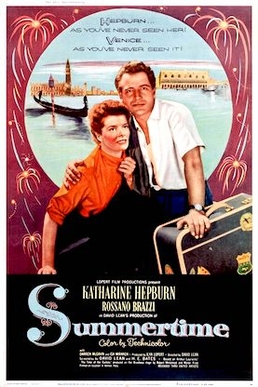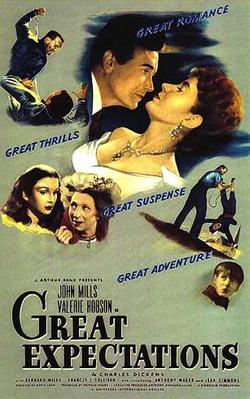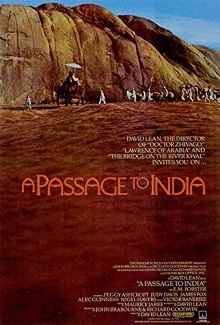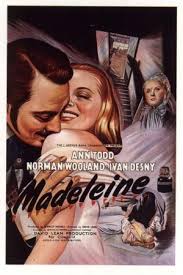Related Research Articles

The Bridge on the River Kwai is a 1957 epic war film directed by David Lean and based on the 1952 novel written by Pierre Boulle.

Charles Laughton was a British-American actor. He was trained in London at the Royal Academy of Dramatic Art and first appeared professionally on the stage in 1926. In 1927, he was cast in a play with his future wife Elsa Lanchester, with whom he lived and worked until his death.

Sir David Lean was an English film director, producer, screenwriter, and editor, widely considered one of the most important figures of British cinema. He directed the large-scale epics The Bridge on the River Kwai (1957), Lawrence of Arabia (1962), Doctor Zhivago (1965), Ryan's Daughter (1970), and A Passage to India (1984). He also directed the film adaptations of Charles Dickens novels Great Expectations (1946) and Oliver Twist (1948), as well as the romantic drama Brief Encounter (1945).

Sir Alexander Korda was a Hungarian–born British film director, producer, and screenwriter, who founded his own film production studios and film distribution company.

Summertime is a 1955 romantic comedy drama film directed by David Lean, and starring Katharine Hepburn, Rossano Brazzi, Darren McGavin, and Isa Miranda. It follows a lonely middle-aged American secretary and her experiences touring Venice alone for the first time, during which she falls in love with an Italian antiques dealer. Lean co-wrote the screenplay with H.E. Bates, based on the play The Time of the Cuckoo by Arthur Laurents.
Hobson's Choice is a play by Harold Brighouse, the title taken from the popular expression, Hobson's choice—meaning no choice at all.

Oliver Twist is a 1948 British film and the second of David Lean's two film adaptations of Charles Dickens novels. Following his 1946 version of Great Expectations, Lean re-assembled much of the same team for his adaptation of Dickens' 1838 novel, including producers Ronald Neame and Anthony Havelock-Allan, cinematographer Guy Green, designer John Bryan and editor Jack Harris. Lean's then-wife, Kay Walsh, who had collaborated on the screenplay for Great Expectations, played the role of Nancy. John Howard Davies was cast as Oliver, while Alec Guinness portrayed Fagin and Robert Newton played Bill Sykes.

Kathleen Walsh was an English actress, dancer, and screenwriter. Her film career prospered after she met her future husband film director David Lean, with whom she worked on prestige productions such as In Which We Serve and Oliver Twist.

In the performing arts industry such as theatre, film, or television, casting, or a casting call, is a pre-production process for selecting a certain type of actor, dancer, singer, or extra for a particular role or part in a script, screenplay, or teleplay. This process may be used for a motion picture, television program, documentary film, music video, play, or advertisement, intended for an audience.

Carl Foreman, CBE was an American screenwriter and film producer who wrote the award-winning films The Bridge on the River Kwai and High Noon, among others. He was one of the screenwriters who were blacklisted in Hollywood in the 1950s because of their suspected communist sympathy or membership in the Communist Party.

Great Expectations is a 1946 British drama film directed by David Lean, based on the 1861 novel by Charles Dickens and starring John Mills and Valerie Hobson. The supporting cast included Bernard Miles, Francis L. Sullivan, Anthony Wager, Jean Simmons, Finlay Currie, Martita Hunt and Alec Guinness.

A Passage to India is a 1984 epic historical drama film written, directed and edited by David Lean. The screenplay is based on the 1960 play of the same name by Santha Rama Rau, which was in turn based on the 1924 novel of the same name by E. M. Forster.
Sir Anthony James Allan Havelock-Allan, 4th Baronet was a British film producer and screenwriter whose credits included This Happy Breed, Blithe Spirit, Great Expectations, Oliver Twist, the 1968 version of Romeo and Juliet and Ryan's Daughter.

Island of Lost Souls is a 1932 American science fiction horror film directed by Erle C. Kenton. Produced and distributed by Paramount Productions, it is based on H. G. Wells' 1896 novel The Island of Doctor Moreau, and stars Charles Laughton, Richard Arlen, and Kathleen Burke. Island of Lost Souls is about Edward Parker (Arlen), a sailor who finds himself stranded on an island that is occupied by the scientist Dr. Moreau (Laughton). Parker agrees to stay until the next boat arrives; Moreau introduces him to Lota (Burke), who unknown to Parker, is part-panther. It is revealed all of the island's inhabitants are the results of Moreau's experiments to create humans from animals. Moreau tries to persuade Lota to have sex with Parker so he can continue his experiments.

Madeleine is a 1950 British film noir directed by David Lean, based on a true story of Madeleine Smith, a young Glasgow woman from a wealthy family who was tried in 1857 for the murder of her lover, Emile L'Angelier. The trial was much publicised in the newspapers of the day and labelled "the trial of the century". Lean's adaptation of the story starred his wife, Ann Todd, with Ivan Desny as her character's French lover. Norman Wooland played the respectable suitor and Leslie Banks the authoritarian father, both of whom are unaware of Madeleine's secret life. Lean made the film primarily as a "wedding present" to Todd, who had previously played the role onstage. He was never satisfied with the film and cited it as his least favourite feature-length movie.

Hobson's Choice is a 1954 British romantic comedy film directed by David Lean. It is based on the 1916 play of the same name by Harold Brighouse. It stars Charles Laughton in the role of Victorian bootmaker Henry Hobson, Brenda de Banzie as his eldest daughter and John Mills as a timid employee. The film also features Prunella Scales in one of her first cinema roles.
The 8th British Academy Film Awards, given by the British Academy of Film and Television Arts in 1955, honored the best films of 1954.

The following is a filmography of David Lean, whose body of work in the film industry spanned the period from 1930 to 1984. This list includes the release year of the film, the role(s) Lean had in the production of each film, and additional notes such as awards and nominations. Lean directed 17 feature films in total. Lean often directed the large-scale epics The Bridge on the River Kwai (1957), Lawrence of Arabia (1962), Doctor Zhivago (1965), and A Passage to India (1984).He also directed two adaptations of Charles Dickens novels, Great Expectations (1946) and Oliver Twist (1948), as well as the romantic drama Brief Encounter (1945).

Miracle in Soho is a 1957 British drama film directed by Julian Amyes and starring John Gregson, Belinda Lee and Cyril Cusack. The film depicts the lives of the inhabitants of a small street in Soho and the romance between a local road-builder and the daughter of Italian immigrants.
Norman Savage (1930–1973) was an English film editor. He is credited as the principal editor on seven feature films, and as the sound editor on another four. He worked with the director David Lean on four films that spanned Savage's entire career. Lean has been noted as possibly "the best British film director ever", and was himself a masterful editor. Savage started his career as an assistant editor on Lean's Hobson's Choice (1954). Savage was Anne V. Coates' first assistant editor for Lean's Lawrence of Arabia (1962). He was nominated for an Academy Award for Best Film Editing for Lean's 1965 film Doctor Zhivago, and was nominated for the BAFTA Award for Best Editing for Lean's 1970 film Ryan's Daughter. Savage died of leukemia while editing the film Lady Caroline Lamb (1972). That film is the only one directed by Robert Bolt, a playwright and screenwriter who had worked on several films directed by Lean.
References
- 1 2 3 4 McFarlane, Brian (28 February 2014). The Encyclopedia of British Film: Fourth edition. Oxford University Press. pp. 717–718; ISBN 9781526111968
- ↑ "Norman Spencer". BFI. Retrieved 23 September 2020.
- 1 2 3 4 "Norman Spencer: Interview notes". The History Project . Retrieved 29 December 2020.
- 1 2 "How We Made Hobson's Choice". The Guardian (30 June 2014). Retrieved 23 September 2020.
- 1 2 Hurrell, Alex (27 July 2013). "Film chief and son of Oscar winner attend screening of David Lean classic at Wolterton Hall". Eastern Daily Press. Retrieved 23 September 2020.
- ↑ Brownlow, Kevin (1996). David Lean: A Biography. London: Faber & Faber. pp. 298–299. ISBN 0571191681.
- ↑ Zarroli, Jim (31 August 2011). "On Location: A 'Summertime' Romance In Venice". WBUR News. Retrieved 24 September 2020.
- ↑ Brownlow, Kevin (1996). David Lean: A Biography. London: Faber & Faber. pp. 351–354. ISBN 0571191681.
- 1 2 Dunhill, Lawrence (26 August 2009). "Hollywood film producer takes French lessons in Iver Heath". Bucks Free Press. Retrieved 23 September 2020.